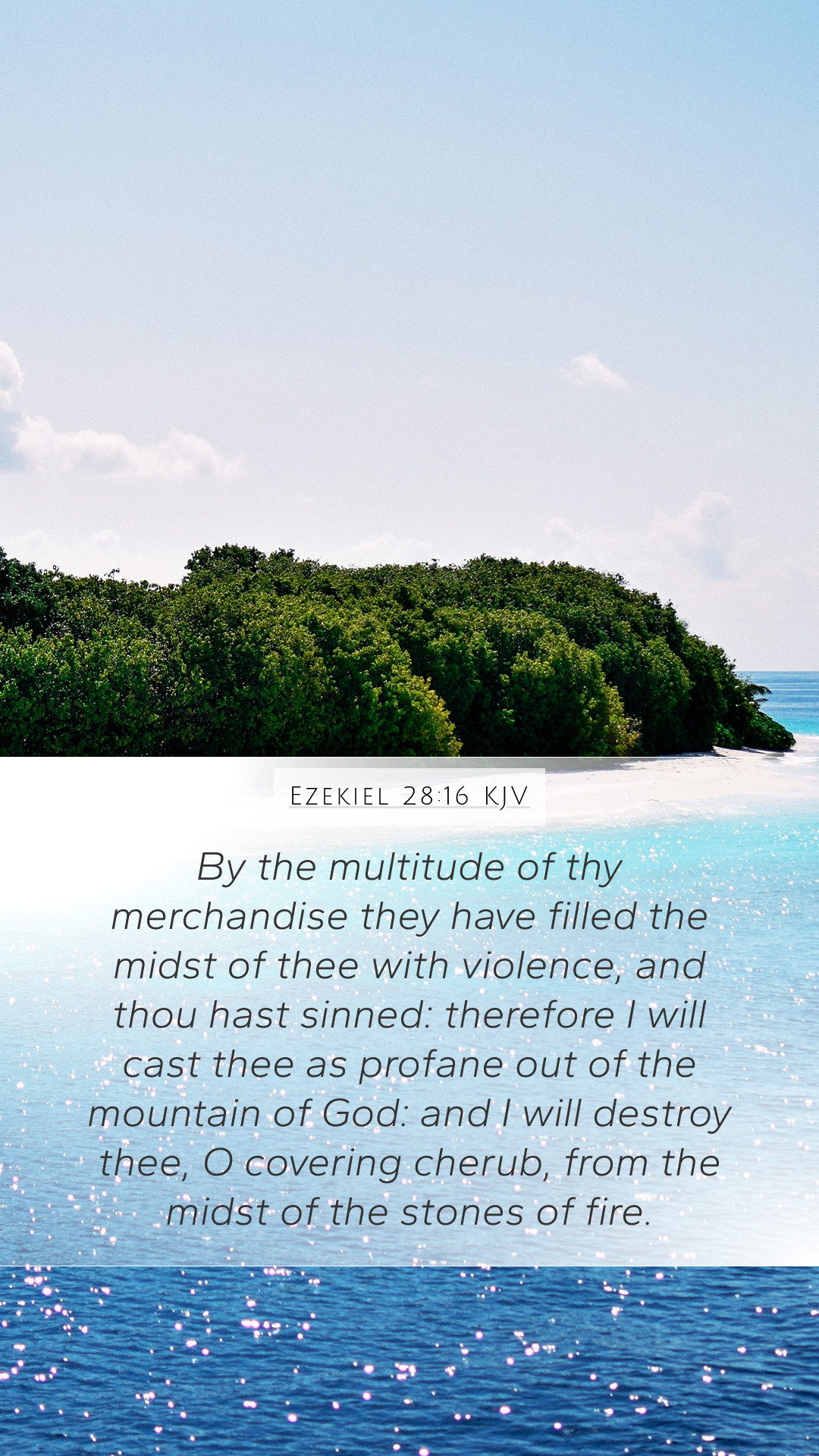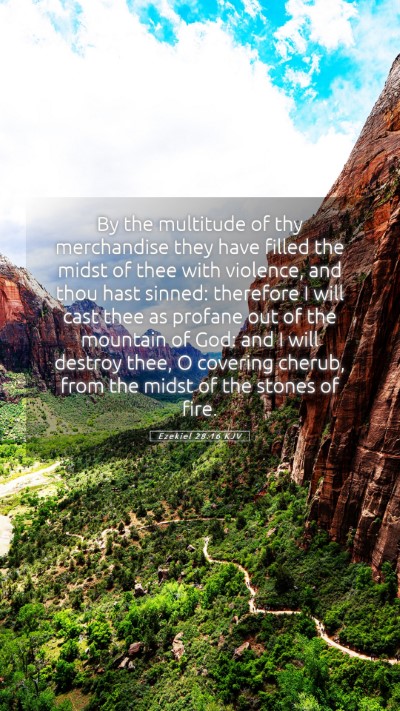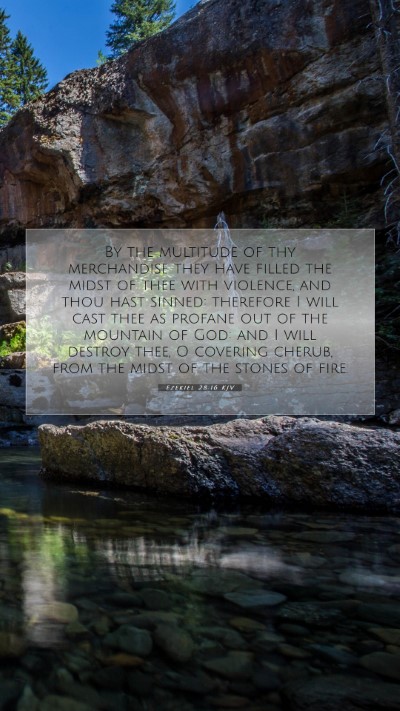Ezekiel 28:16 Bible Verse Meaning and Commentary
Verse Reference: Ezekiel 28:16 - "By the multitude of thy merchandise they have filled the midst of thee with violence, and thou hast sinned: therefore I will cast thee as profane out of the mountain of God: and I will destroy thee, O covering cherub, from the midst of the stones of fire."
Understanding Ezekiel 28:16
Ezekiel 28:16 serves as a vivid indictment against the King of Tyre, a figure often interpreted as representative of greater spiritual truths, particularly concerning pride and eventual downfall. In this verse, the prophet Ezekiel reveals how the King’s abundance led not to gratitude, but to violence and sin.
Commentary Insights:
-
Matthew Henry:
Henry points out that the "multitude of thy merchandise" can be viewed metaphorically, representing the riches and power that ultimately lead to corruption. This mirrors the spiritual decline when one becomes consumed by material wealth and ambition.
-
Albert Barnes:
Barnes interprets the "violence" mentioned as a consequence of pride. The lavishness of the King’s surroundings and his dealings had bred a self-serving mentality that strayed from divine obedience and ethical conduct.
-
Adam Clarke:
Clarke emphasizes the term "covering cherub," suggesting a former exalted state that has fallen due to the King’s arrogance. The removal from the "mountain of God" symbolizes a total loss of divine favor and communion with God, a pivotal theme in understanding the spiritual implications of the verse.
Key Themes in Ezekiel 28:16
- Spiritual Downfall: The transition from a state of favor to being cast out due to sin.
- The Dangers of Materialism: How prosperity can lead to moral decay and violence.
- Divine Judgment: God's reaction to pride and iniquity, leading to the loss of status and heavenly standing.
Historical Context
This verse resides within a broader prophetic context addressing both earthly powers and their corresponding spiritual realities. The King of Tyre, historically known for extreme wealth and trade, showcases how such attributes may distract from the call to humility before God.
Cross References
- Isaiah 14:12-14: A parallel condemnation of pride and fall, often associated with the fall of Lucifer.
- James 4:6: "God resisteth the proud, but giveth grace unto the humble," emphasizing the divine principle against pride.
- Revelation 18:3: Reflects the sins of materialism and judgment upon commercial excesses.
Application to Daily Life
In applying the insights of Ezekiel 28:16, individuals are prompted to reflect on their own interactions with wealth and power. Are such elements leading to boastfulness and division, or are they used for communal upliftment and service? The cautionary tale of the King of Tyre warns against excessive reliance on material possessions at the expense of spiritual integrity.
Further Exploration
This analysis highlights the multidimensional aspects of Ezekiel 28:16, providing rich ground for Bible study groups or online Bible study platforms aiming to explore themes of pride, judgment, and moral integrity. For those seeking deeper clarification, various Bible study tools and guides focused on contextualizing Scripture can enhance understanding.
- Look further into Bible study resources that discuss the significance of the prophetic literature.
- Create Bible study plans that include related verses and their meanings.
- Engage with Bible study lessons centered on Old Testament prophecies and their New Testament fulfillments.


